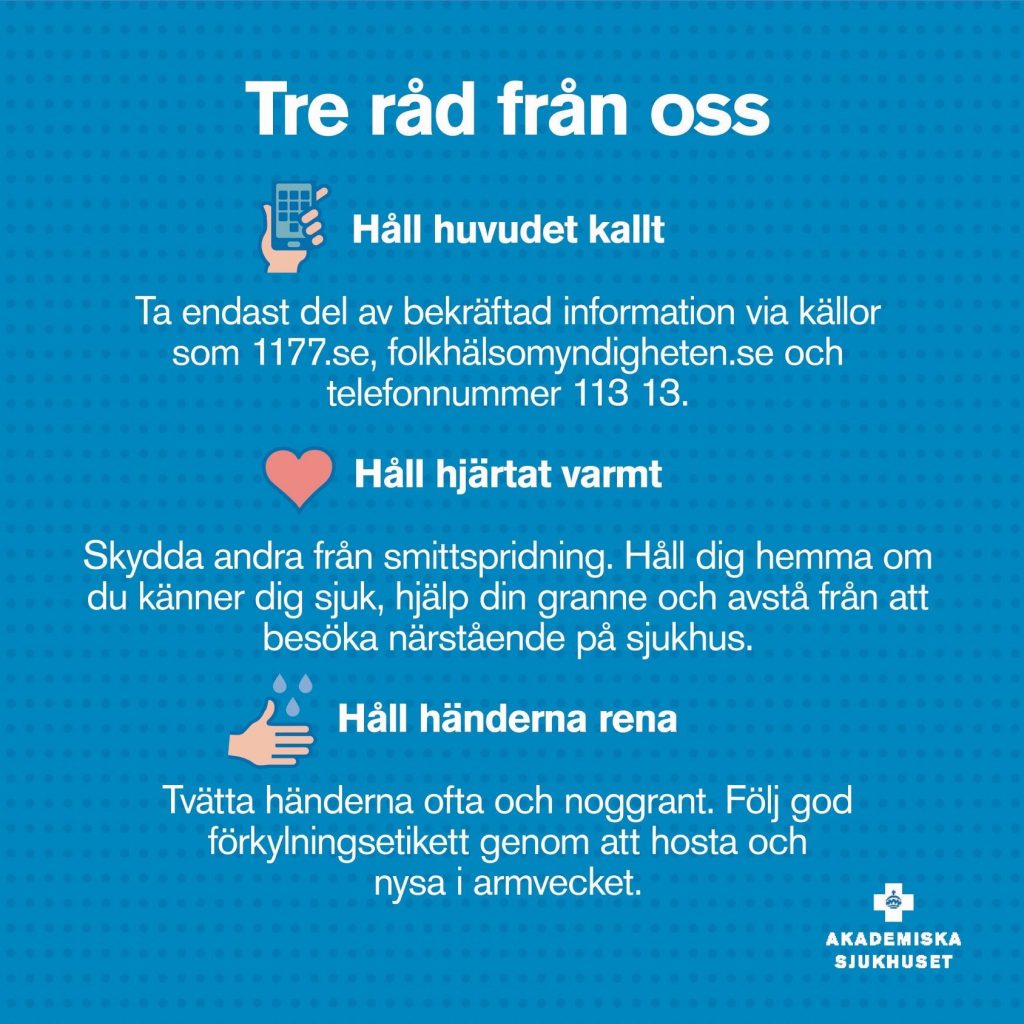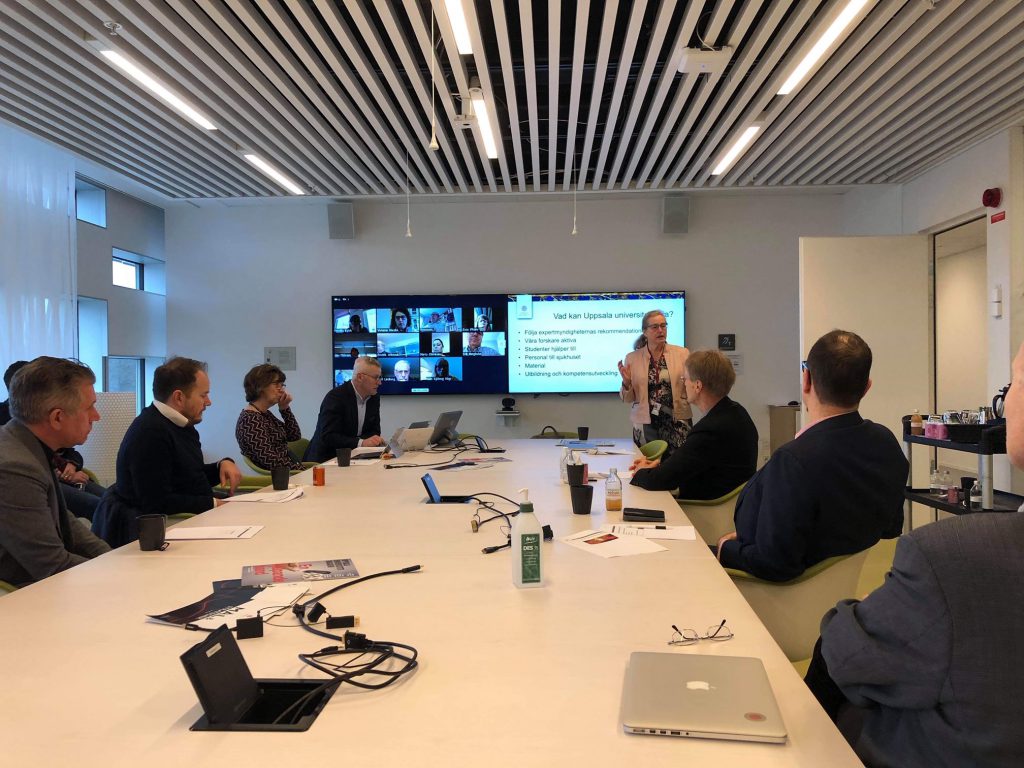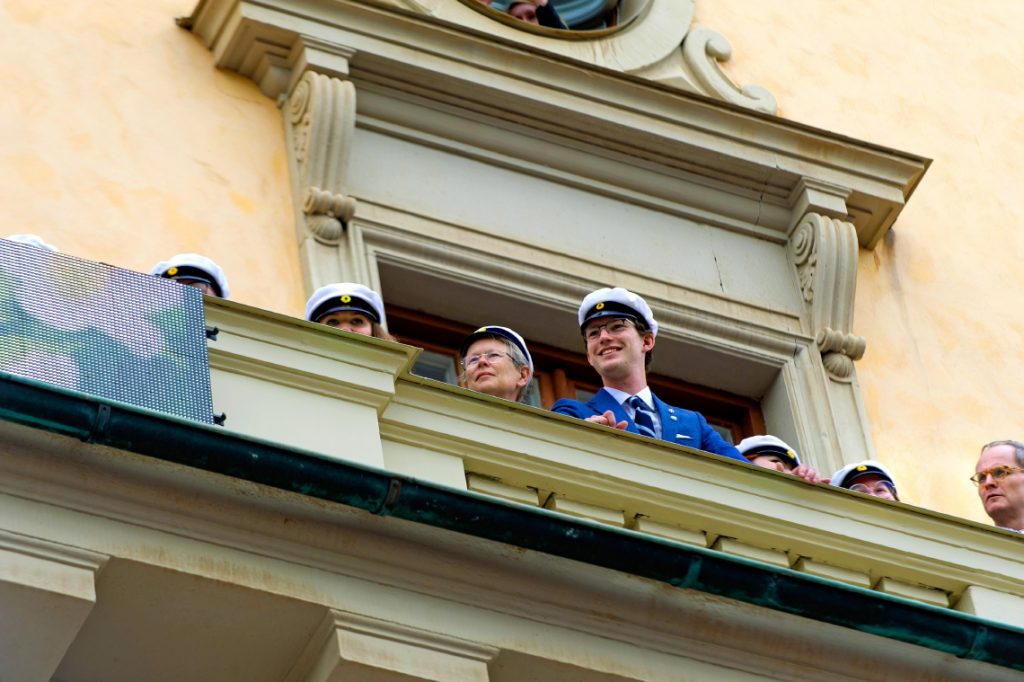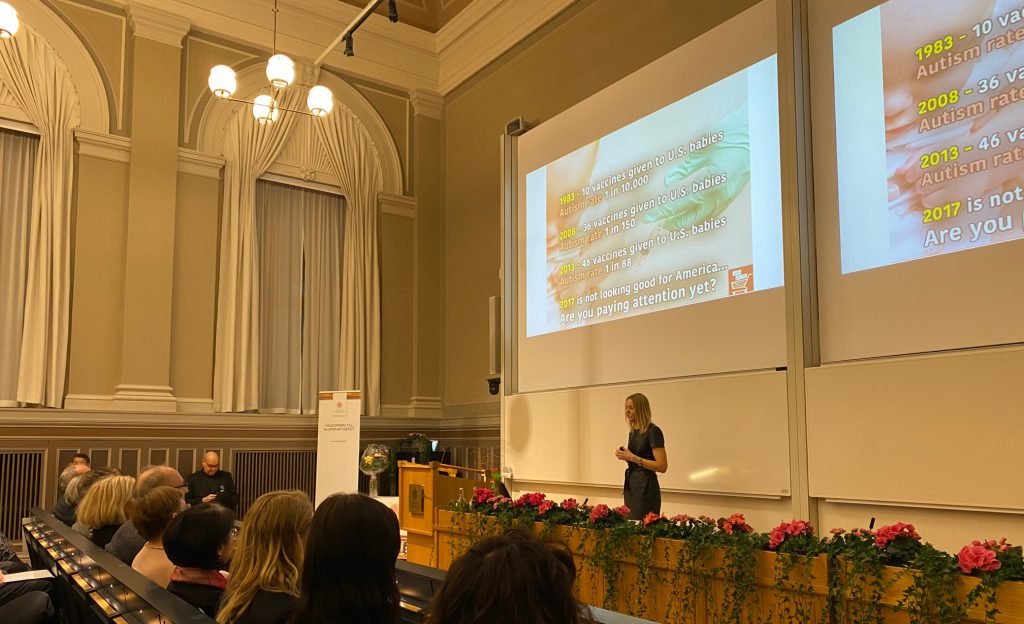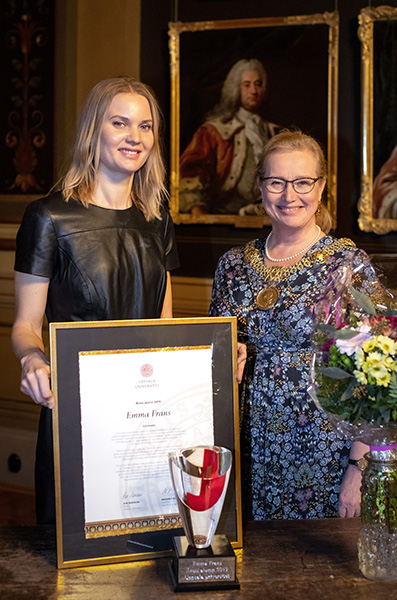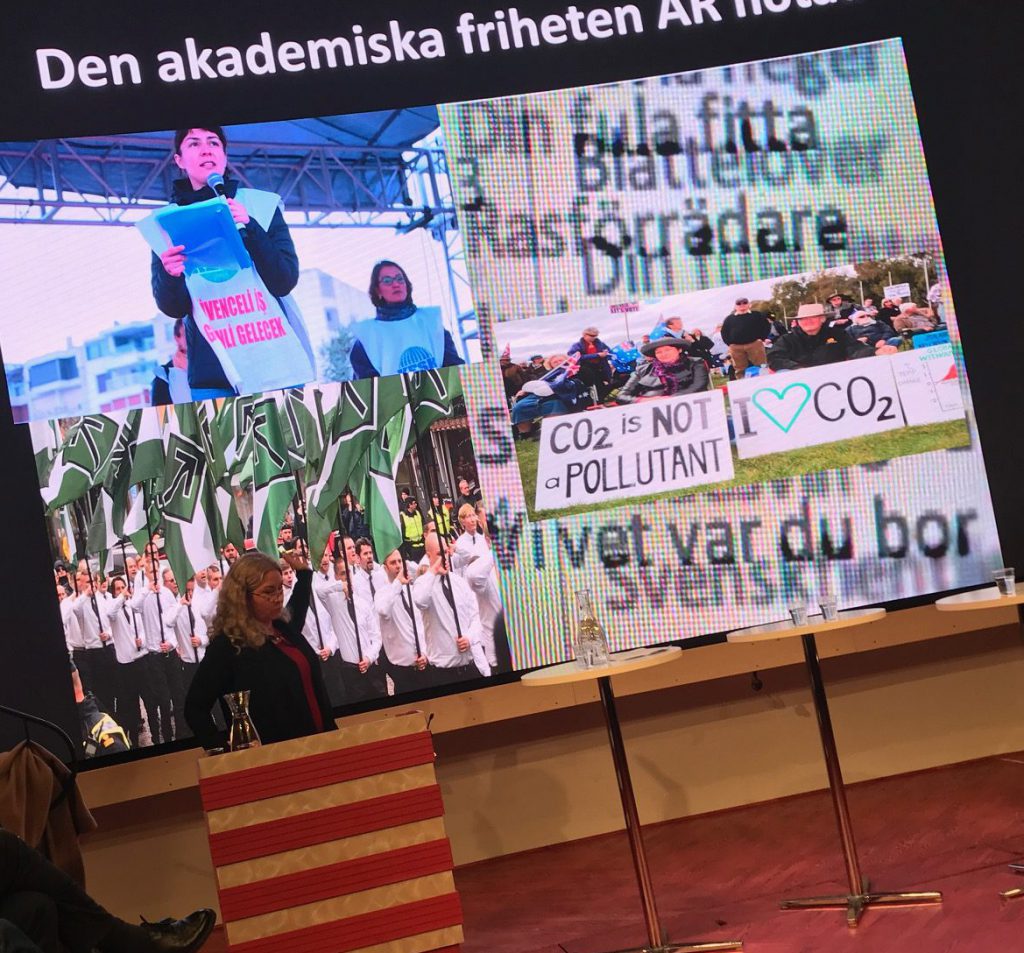Following the rapid and radical change that the transition to distance education required, we are beginning to discern the contours of a new normality. Many of us are working remotely, fewer are on campus. We’re keeping our distance and washing our hands. As more people fall ill, the government may impose more restrictions, and these are likely to affect our activities. We need to be prepared for more widespread sickness absence.
The most important thing now is staying power. This situation will continue for some time. Yesterday we took a decision to extend the measures we have previously announced until 15 May. The decision also contained two new measures.
From now on, our campus premises will be open to anyone who has a card and code, but not to the public. Also, the previous decision on a maximum of 100 people for conferences and meetings at the University no longer applies; instead, meetings should primarily be held remotely. At any remaining physical meetings, social distancing will apply, i.e., fewer participants in larger rooms. And it must always be possible to participate remotely.
While all this is going on, planning is already under way for next year. Yesterday morning we had an extended Management Council meeting (just under half the people in the room, the others via Zoom) to begin the process of drafting an operational plan for 2021. As far as possible, we are aiming to stick to the existing conditions for planning and established principles. We believe this is best for the University, particularly in the present situation.
Several members of the Faculty of Medicine will be increasing their engagement in health and medical care; in this emergency situation, research has to take a back seat. We are proud of their great sense of responsibility and their willingness to help. Those of you who are contributing knowledge in various public connections are also doing important work. You are needed alongside the public authorities when anxiety is growing and people are trying to understand what is happening.
We call on you all at this time to keep going and stay strong. Even if the situation is becoming normal in some sense, it’s important not to relax. The world and Sweden are in an exceptional situation and our ability to continue to keep our distance and reduce the spread of infection is our joint responsibility. Help one another and don’t forget to get in touch with people who have no family and friends nearby.
Yesterday afternoon, the government issued a press release proposing a number of measures in the area of education. Already last week, Uppsala University signalled that we can admit more people to summer courses, expand certain programmes, the foundation year and the number of places in distance education. As a university, we will naturally help and contribute in every way we can.

